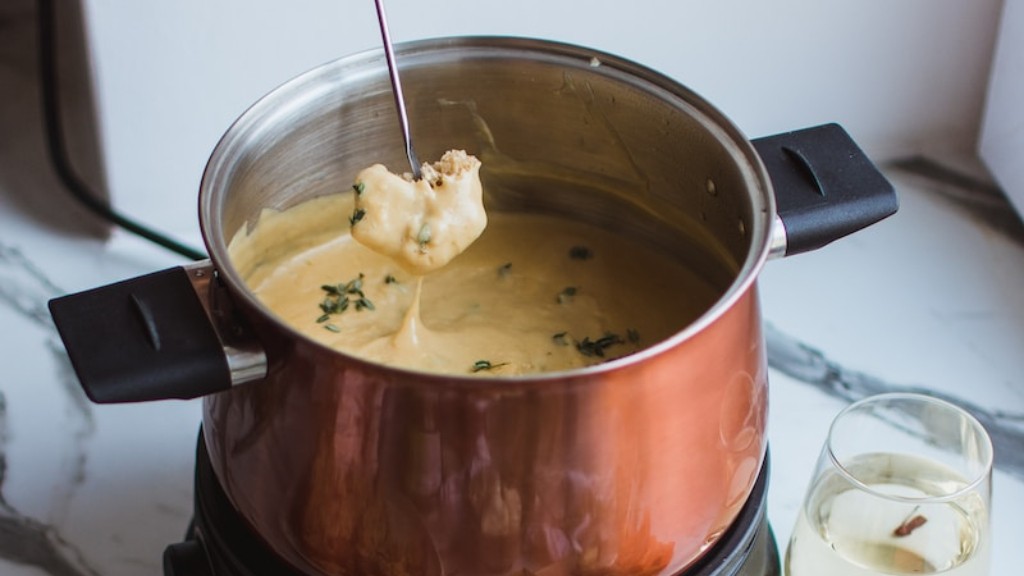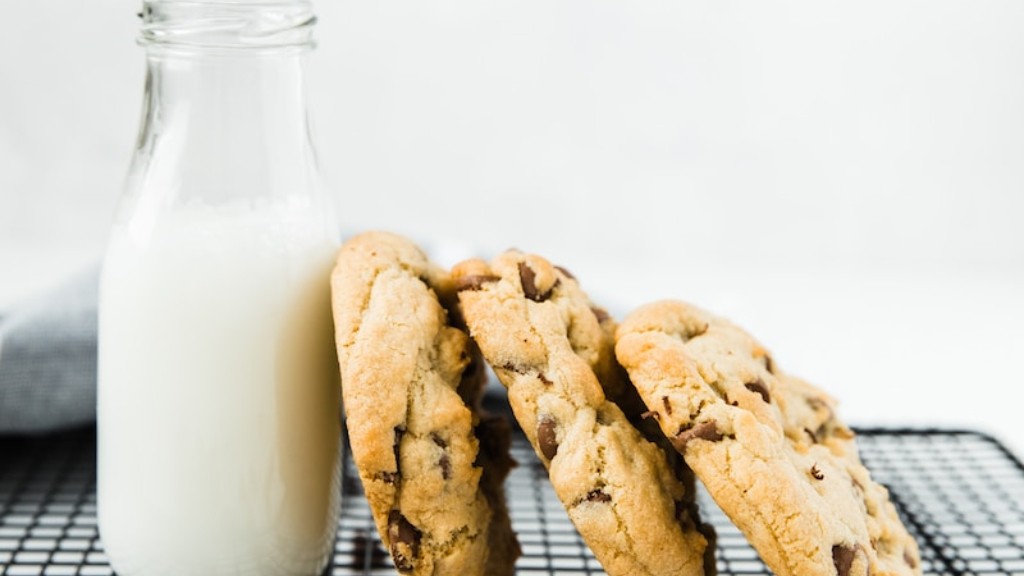Eating Macaroni and Cheese During Colonoscopy Preparations
Colonoscopies are an important part of a person’s regular health routine, and it is important to consider what food should be eaten prior to the procedure. Generally, doctors advise eating a soft, low-fiber food before a colonoscopy. Some people are tempted to include macaroni and cheese in their pre-procedure diets, but it’s important to understand the risks of eating this type of food before a colonoscopy.
Macaroni and cheese is prepared using pasta and cheese sauce, which are high in cholesterol and fat. Eating this type of food prior to the colonoscopy can cause excess weight gain and make the procedure more difficult. Additionally, cheese sauce is composed of milk fat and other emulsifiers, which can cause digestive issues such as bloating and constipation.
There are many other foods that are much safer to eat prior to a colonoscopy. Lean proteins such as fish, poultry, and lean red meats are recommended. High-fiber vegetables are also generally safe, and these include green beans, bell peppers, and broccoli. Certain starchy vegetables like potatoes are also generally safe, provided there is no added butter, salt, or other ingredients.
It is important to note that some foods should be avoided when preparing for a colonoscopy. This includes raw fruits and vegetables, fatty or fried meats, and other fatty or sugary foods. Additionally, some fruits may contain sugar or fiber, which can make the procedure more difficult.
It is also important to talk to a doctor before eating macaroni and cheese before a colonoscopy. If the doctor approves, it is best to prepare the macaroni and cheese with low-fat cheese, no added butter or oil, and non-starchy vegetables like broccoli or bell peppers. It is also important to avoid commercially prepared macaroni and cheese, as it may contain preservatives and other additives that can make the procedure more difficult.
Finally, it is important to drink plenty of fluids in order to stay hydrated before the colonoscopy. While water is ideal, other fluids such as tea or fruit juices are also acceptable. It is also important to avoid alcoholic beverages before the procedure. All of these tips will help make the colonoscopy much smoother and more successful.
Effects of Eating Macaroni and Cheese
Macaroni and cheese is popular for its bread-and-butter flavour, but what are the effects of eating this type of food prior to a colonoscopy? Generally, macaroni and cheese is loaded with fat and cholesterol, which can cause excess weight gain and discomfort during the procedure. Additionally, the cheese sauce in macaroni and cheese contains milk fat and other emulsifiers, which can cause bloating and constipation.
Macaroni and cheese is also high in sodium, which can also present problems during a colonoscopy. Even though the cheese sauce is low in fat, it still contains sodium, which can cause dehydration. Additionally, the sodium can also negatively affect the overall health of the patient and make the procedure more difficult.
It is also important to consider the effects of carbohydrate consumption on the body when eating macaroni and cheese. The carbohydrates found in macaroni and cheese can trigger the release of hormones, which can lead to an increase in blood sugar and an increase in appetite. This can also present problems when it comes to the colonoscopy. High blood sugar levels can cause symptoms such as fatigue and irritability.
Finally, it is important to consider the effects of eating macaroni and cheese on the digestive system. Although the cheese sauce in macaroni and cheese is low in fat, it still contains emulsifiers that can cause bloating and constipation. Additionally, the carbohydrates found in the macaroni can also cause digestive problems in some individuals.
Potential Side Effects of Eating Macaroni and Cheese
Eating macaroni and cheese prior to a colonoscopy can cause a number of different side effects. Some of these side effects can be quite serious, so it is important to consider the potential risks before eating macaroni and cheese.
One of the potential side effects of eating macaroni and cheese before a colonoscopy is an increased risk of developing gallstones. Gallstones are caused by an accumulation of fats in the gallbladder, and eating high-fat foods such as macaroni and cheese can contribute to their formation. Additionally, the emulsifiers found in the cheese sauce can cause a spike in cholesterol levels, which can further increase the risk of developing gallstones.
Eating macaroni and cheese can also increase the risk of developing pancreatitis. Pancreatitis occurs when the pancreas becomes inflamed, and the high-fat content of macaroni and cheese can aggravate this condition. Additionally, the sodium found in macaroni and cheese can affect the health of the pancreas and cause pancreatitis.
Macaroni and cheese can also cause digestive issues such as bloating and constipation. The cheese sauce contains emulsifiers that can cause bloating, and the carbohydrates found in the macaroni can also lead to constipation. Both of these symptoms can be uncomfortable and can make the colonoscopy more difficult.
Alternatives to Macaroni and Cheese
If macaroni and cheese is not an appropriate choice for eating prior to a colonoscopy, there are other alternatives that can provide the same comforting flavour without the risks. For example, vegetable soups can provide the same type of comforting flavour as macaroni and cheese without the associated risks.
Another option is to prepare a mashed potato dish with non-starchy vegetables. This type of dish can provide the same comforting flavour as macaroni and cheese, and it also provides important vitamins and minerals that can help promote digestive health.
There are also other alternatives that can provide a healthy and comforting meal before a colonoscopy. For example, oatmeal or oat-based cereals can provide a comforting meal without the risks associated with macaroni and cheese. Additionally, low-fat yogurt can also provide a comforting meal that is higher in protein than macaroni and cheese.
Finally, lean proteins such as fish, poultry, and lean red meats are recommended. Lean proteins contain essential amino acids, which can help promote digestive health. Additionally, high-fiber vegetables are also generally safe, and these include green beans, bell peppers, and broccoli.
Tips for Eating Macaroni and Cheese Before a Colonoscopy
Although eating macaroni and cheese before a colonoscopy is not generally recommended, there are certain tips that can help to make the meal more safe and comfortable. For example, it is important to prepare the macaroni and cheese with low-fat cheese, no added butter or oil, and non-starchy vegetables like broccoli or bell peppers.
It is also important to avoid commercially prepared macaroni and cheese, as it may contain preservatives and other additives that can make the procedure more difficult. Additionally, it is important to drink plenty of fluids in order to stay hydrated before the colonoscopy.
Finally, it is important to discuss the potential risks with a doctor before eating macaroni and cheese. If the doctor approves, it is important to follow the tips listed above in order to ensure that the meal is safe and comfortable.
Tips for an Effective Colonoscopy Preparation Diet
In order to ensure that the colonoscopy procedure is as successful as possible, it is important to follow an effective preparation diet. Generally, doctors advise eating a soft, low-fiber food before a colonoscopy. Additionally, it is important to avoid raw fruits and vegetables, fatty or fried meats, and other fatty or sugary foods.
It is also important to talk to a doctor before making any major changes to the diet. Additionally, it is important to incorporate lean proteins into the diet, such as fish, poultry, and lean red meats. High-f




